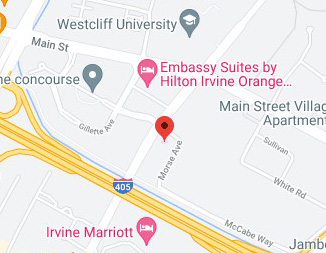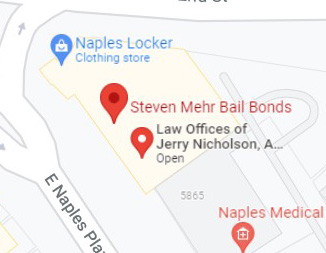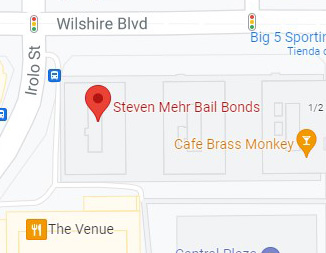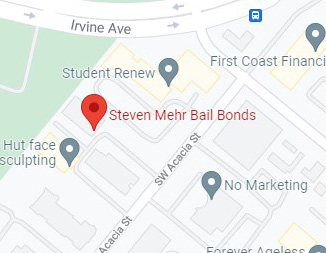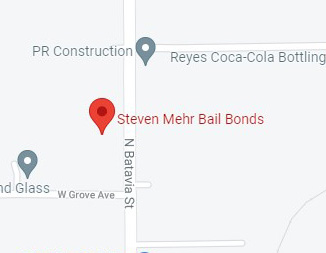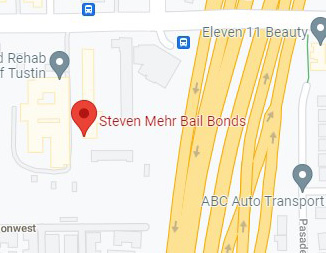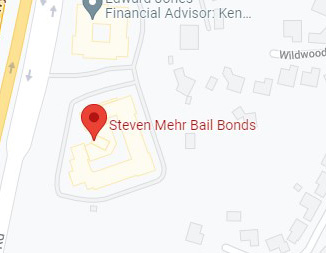Nobody wants to spend time behind bars, but unfortunately, events occur, leaving you in a police cell or jail. Spending a night or even some time in prison can be traumatizing, which is why the first step you should take is to post bail to secure freedom. Bail is the security in the form of money or property you, as the defendant, deposit with the court to obtain pretrial release and guarantee return in court at a future date.
If it’s your first time being arrested and detained in Anaheim, you are probably wondering what bail bonds are and how it is related to your criminal trial. At Steven Mehr Bail Bonds, we understand the bail process and its impact on the legal proceedings, and we are ready to help you post bail.
Definition of Bail Bonds
If you or a relative is apprehended and held in jail for breaking the law, you could be released on the promise that you will appear in court later for your hearings after release. Unfortunately, people who have committed minor offenses or have a clean criminal record are the ones that might be eligible for this process. However, for those defendants with a criminal history or who have committed severe crimes, the court might demand financial collateral that you won’t skip court.
A bail bond is a process where you pay a set amount of money to buy your freedom from police custody pending trial. As a condition of the release, you promise to appear in court for your case proceedings. The amount will be returned if you honor the requirements of the bail release. However, if you fail to obey the conditions, the judge will issue an arrest warrant and forfeit your bail amount.
Posting the bail amount means you can continue working, attending school, and go on with your daily life as you prepare for your trial. Unfortunately, many defendants cannot raise this amount in cash. If you are one of the defendants in these situations, you need to contact Anaheim bail bonds to commence your release on the bail process.
Note that if you are already in custody and fail to acquire a chance to contact a bail bonds agency, the third party that contacts the bail agent to secure your release becomes the cosigner. Therefore, when you skip court the day you are scheduled to appear, the cosigner will be the first one to contact you to inquire about your whereabouts. If you cannot be traced, the bail agency will seize the cosigner’s property and sell it to raise the amount they had paid as bond. Therefore, you should appear for all your court proceedings after bail release to protect your cosigner.
The reason it’s easy to go after the cosigner’s property is that bail agents require collateral. The term refers to any valuable item your Anaheim bail bonds agent can use to guarantee you will appear in court as scheduled. They need this collateral because when you don’t show up in court, they will be the people paying for your bail, and as such, they might require something of value to hold on to, like your land deed or personal assets like jewelry.
With the bondsmen having something to hold on to, these individuals will come after the property because they already have the deed, seize and sell it to recover the amount owed to the court. If a friend or relative bailed you out, it means they used their property as collateral. Skipping town during your criminal proceedings means the bail agents will come after their property regardless of the case’s outcome.
However, if you attend the court sessions as scheduled and the case comes to an end, you will obtain a refund of the bail amount if you are innocent or not. For a deeper insight into bail bonds and the amount of collateral the court will refund, you need to talk to a bail bonds agency.
The Process of Posting Bail
Generally, the amount of bail required to secure your freedom awaiting trial is usually stated in the bail schedule based on the crime in question. The arresting officer is the person who decides on this amount depending on your case. It is the reason police officers may sight you free after an infraction without having to wait for an arraignment hearing. These officers can go with the amount provided on the schedule or choose a high amount. The judge will then evaluate the case in the arraignment hearing to determine if the amount you should pay as bail if they grant it. The factors to be considered when setting the amount are:
- The severity of the offense in question. If the crime is a serious one, the amount of bail to be set will be higher, or you might even be denied bail.
- The posted California bail schedule, which indicates various charges and appropriate bail amount
- Prior criminal record. Repeat offenders often end up paying more when posting bail.
- Ties in the community.
- Chances that your finances will enable you to skip town with less regard to the amount posted as bail. If the court sets a small amount and you are well off financially, you might flee town because the bail amount is of no use to you. On the other hand, the judge might end up setting a high amount that will make it difficult for you to consider missing court dates.
Once the judge sets the amount you will need to post bail, it’s up to your Anaheim bail bonds to commence the process of posting bail. Because you're the person behind bars, your family, friends, or relatives are the people likely to contact the bail bond agency as your cosigners. These individuals will then explain the process of bail application and agreement.
You can fill out the contract via email if it’s possible, although your cosigner can do it on your behalf. However, the problem with cosigning is that when you miss court after posting bail, the bonds agency will come after your cosigner's property. Therefore, the cosigners need to understand their financial obligation before filling the contract forms. After you complete these forms and agree on payment, a bondsman visits the jail or police custody, where you are held to post bail.
Bail Conditions
If the chances of being granted bail or a lesser bail amount are slim, your attorney can draft several conditions and recommend them to the court. These conditions might convince the judge to reduce the bail amount, and if at all they were to deny you bail, the conditions would reduce the likelihood of such actions. These bail conditions include:
- You should avoid any contact with the victim of your crime
- Handing over your driver’s license and passport to the court
- You should remain within the state of California until the case is determined
- You should avoid drunk driving with any blood alcohol weight
- House arrest and additional electronic monitoring
Setting bail is primarily dependent on the facts of your case, meaning it’s critical to retain the services of Anaheim bail bonds.
Skipping Bail
You will be subject to multiple repercussions or consequences if you’re bailed out but fail to appear before the court as planned. The first step the court will take is to issue a bench warrant known as Failure To Appear (FTA). The warrant is what gives the bondmen the go-ahead to track you down and make an arrest. If you receive an FTA, it means you have forfeited any sum of money you heard paid to the court.
Skipping bail is not always deliberate. For example, you may have fallen ill, thus being admitted to a medical facility. Further, you might have a mental illness or condition that hinders you from understanding the seriousness of the charges against you. This is mainly true for individuals admitted to a psych ward during their scheduled court date. If you were in the custody of another jurisdiction when you were set to appear in court, then you will have a valid reason for not showing up.
However, for any of these reasons to be deemed valid enough to skip bail, you must provide evidence in the form of documents to the relevant government agency.
How Does Bail Relate to Your Criminal Trial?
Bail and your criminal case are related in many ways. These include:
-
Reduces your Chances of Taking a Guilty Plea
If the court grants you bail, but you cannot pay the amount, you might spend up to years behind bars without your case being closed. With the trauma and stress involved in spending time in police custody, you might be tempted to plead guilty to have the matter concluded fast and serve your sentence to secure freedom. Additionally, not knowing when your lawsuit will be heard and concluded while in detention might push you to confess to a crime you didn’t commit to reducing the time you spend in jail.
Therefore, by securing an early pretrial release on bail, you lower the possibility of pleading guilty to reduce your jail time. In addition, with your freedom, you will be in no hurry to close your case, meaning your defense team will have ample time to devise strong defenses that will ensure you don’t return to jail.
-
Posting Bail Improves Case Readiness
Securing your freedom pending trial increases your level of preparedness, enabling you to develop solid evidence. When out of jail, it means you are earning a living, making it easy to hire the services of an experienced criminal lawyer. Apart from hiring a reputable attorney, securing pretrial release means you have adequate time to meet your attorney and discuss the evidence provided by the prosecutor against you to find loopholes that will enable you to mount solid defense strategies for a favorable ruling. What freedom gives you pending trial is the resources and time necessary for a favorable ruling.
Defendants held in custody awaiting criminal proceedings often have minimal time to discuss their case with the attorney handling it. Also, most of these defendants can’t afford private attorney fees, so most are forced to depend on public defenders handling multiple cases simultaneously. As a result, when in custody, the amount of time you meet your attorney is limited, and if it’s a public attorney, you will have little or no time to discuss the case, increasing the chances of an unfavorable outcome.
-
You are Less Likely to be Convicted
Remember, the defendants likely to be denied bail are those with severe criminal cases or history. It means that if the court denies you bail, the likelihood of a harsh sentence when the case is closed is high. In the first arraignment, the prosecuting attorney must explain to the court why your request for bail should be denied. If their reasons for asking the court not to grant bail are valid and robust, the court will not grant bail, and the same unfavorable outcome might be reflected in the trial hearing and sentencing.
The prosecuting team or judges might also rely on pretrial detention to express or acknowledge your guilt. Therefore, whether the court grants or denies bail will influence the prosecutor’s or judge’s decision.
Similarly, attending your criminal trial in shackles and the jail uniform might lead the judges or jury to make a biased decision. However, if the court grants bail and you attend court in civilian clothes and the company of your spouse and children, the case will be solely heard based on its merits and not biasness. That way, you are less likely to end up serving time.
Information for Anaheim Jail and Court
Anaheim Police Department
Phone: (714) 765-1988
Superior Court of Orange County
Contact a Profound Bondsman Near Me
Many defendants or their families in Anaheim, CA, find it challenging to raise the amount required to post bail. Others lack collateral to secure the bond and, as a result, end up in detention until their cases are concluded. The bondmen at Steven Mehr Bail Bonds will provide accurate information about the bail process and how it relates to your trial to ensure you commence the process quickest possible. If you seek quality bail bond services in Anaheim, California, reach out to us at 800-834-8522 today.





